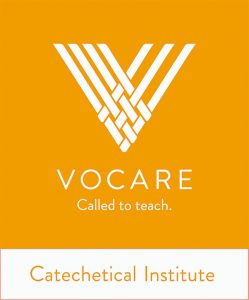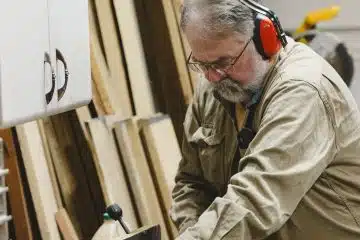VOCARE: What early users say about the new catechetical training program
 VOCARE, the first project developed by the Archdiocese of Cincinnati’s new Catechetical Institute, is being launched with four area convocations for catechists this fall (for our coverage, see the September print issue).
VOCARE, the first project developed by the Archdiocese of Cincinnati’s new Catechetical Institute, is being launched with four area convocations for catechists this fall (for our coverage, see the September print issue).
Replacing the previous system of certification classes for religion teachers, school principals, and anyone teaching catechesis for parishes, VOCARE is an online formation system. Users can take classes at their own pace from their homes or workplaces, ensuring that everyone in the archdiocese receives the same instruction while no one has to travel. Designed to be engaging and absorbing, the VOCARE classes also provide continuing education and formation for as long as the catechist continues to teach.
Developed over 18 months, after years of focus groups and listening sessions, VOCARE was tested by early users who had a “sneak peek” at content, as well as a chance to help the Catechetical Institute staff ensure that the program worked smoothly and accomplished what they wanted it to accomplish. Here’s what five of them have to say:
Cody Egner, regional director of religious education for St. Cecilia, St. Anthony, and St. Margaret-St. John Parishes in Cincinnati:
“The VOCARE certification llatform is a great and much-needed improvement on the catechist certification process. Well done, Father Tom Wray and staff! It is very easy to use. It only took me a few minutes to explore the site and then I felt I had a good understanding of how to navigate it well.
“I believe VOCARE will have a positive impact on the Archdiocese of Cincinnati. There are many great things about this new approach. The first few that come to mind are that VOCARE is affordable, accessible, and consistent in quality orthodox catholic teaching.”
Jim Devlin, parish catechist (Our Lady of the Rosary), professional Educational Consultant for publisher Sadlier:
“Talk about a changing of the guard! While I liked the classes we’ve had in the past, it was hard to make them work with my schedule. Now, I can access content anytime, anywhere, and it’s so much more flexible around work, family, and life. It’s super easy to use. Even if you’re not completely comfortable online, it’s easy to get in, get engaged, and get going.
“I think it’s a strong move. Now, it’s accessible where I am. Also, it provides for continuous growth. We should always be growing in our faith, and VOCARE gives me a platform to do that.
Therese Brown, director of religious education for the St. Augustine/St. Joseph Parish Cluster:
“As a catechist, I really like the online program. It is user-friendly, convenient, and quality. I can be anywhere, at any time and log in, and pick up where I left off even if I can only do five or 15 at that moment. The classes are so much better than my mind had imagined for online classes! The class I just took is engaging and interactive, clear, and beautiful; kept my attention, using all the senses with prayer, listening, reading, and beautiful artwork.
“As a catechetical leader, this will help me and my team of K-grade six catechists. It is convenient, consistent and true! I am excited to present this to them and help get them started in VOCARE. I believe this is the help they have been looking for. Thank you Archbishop Schnurr and the Office of Evangelization and Discipleship team; also to those who contributed to the One Faith, One Hope, One Love Campaign. God Bless.
John Thornburg, Principal, Summit Country Day School:
“I think it is a wonderful way to do professional development. The curriculum is really good and I am looking forward to completing the coursework. It seems pretty straightforward and easy to use. I think it will be a positive move. It will allow the training to be easily accessible and help keep us all on the same page.”
LISA FLETCHER, teacher at St. Margaret of York School:
“With the online format, there are more options available for various types of classes, as well as more flexibility on choosing when to take it, and who you would like to take the courses with. If a group of teachers from one school want to take a class together, they can do that. There is also more thought given to the types of courses offered, teaching across all vocations and ministries. The online classes are easy to navigate through. It will take a bit of time to understand the process and explanation of the badges, but once the initial information is given, it will be simple to get online, pick a course and take it.
“It will have a positive impact on the archdiocese. The education side needed revamped. There needed to be be more energy and focus brought back to a critical part of the ministry of the archdiocese. Helping DRE’s, principals, catechetical leaders, and teachers learn more about their faith and instill that in those they are teaching is very important.”
Currently, VOCARE is designed for catechists and potential catechests; users get access to the program through their local catechetical leader (usually their principal or parish director of religious education). The Catechetical Institute plans to broaden its offerings to other groups in the future.
For more information about VOCARE, see our previous coverage or go to the Archdiocese of Cincinnati’s VOCARE page, youarecalled.com













